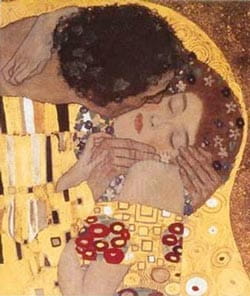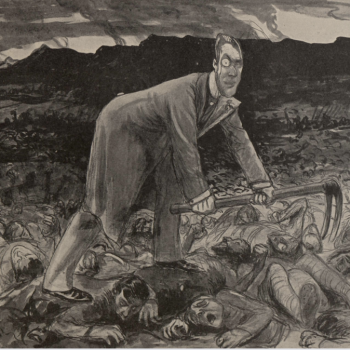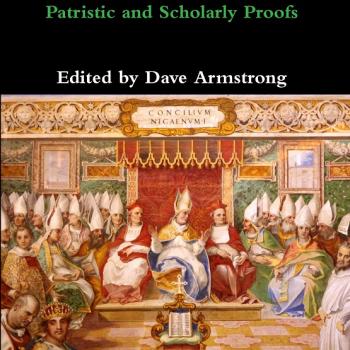By Jim Burklo
 "Eat, friends, drink, and be drunk with love."
"Eat, friends, drink, and be drunk with love."
Did Norah Jones whisper it? No. Did Frank Sinatra croon it? No. Did Maria Muldaur write it? No. Did Yanni sing it? No. This line comes straight out of the Bible, from the Song of Solomon, chapter 5, verses 1-2. Here's some more:
I gather my myrrh with my spice, I eat my honeycomb with my honey, I drink my wine with my milk. I slept, but my heart was awake. Listen! My beloved is knocking. Open to me, my sister, my love; my dove, my perfect one; for my head is wet with dew, my locks with the drops of the night.
The Song of Solomon is a steamy romance between a man and a woman. For thousands of years, Jewish and Christian theologians attempted to define the Song of Solomon as a long allegory about God's love for humanity. God was the lover and human beings were the beloved. This was a creative interpretation of the text, but certainly not the first meaning that leaps off the pages.
Yet this spiritual, symbolic hearing of the Song was more than just an attempt to denature its very earthy sexuality. Across religious boundaries, there is a long tradition of blurring the distinction between human and divine love.
The medieval Sufi poet, Rumi, put it this way:
Lovers share a sacred decree --
to seek the Beloved.
They roll head over heels,
rushing toward the Beautiful One
like a torrent of water.
Is the Beloved a man, a woman, or Allah? Is God the Beautiful One, or is it the lover's partner, or are they one and the same? Once we fall into the torrent of love, might we be carried away into the very heart of God? Whether it was God that made you head over heels in love in the first place, or another human being, is it not God into whom you will tumble, in the end? There is a moment when lovers can become one with each other and with God in an ineffable ecstasy that includes but transcends the physical manifestations of orgasm. When there is deep respect, safety, and trust in sexual intimacy, it can be a path to the divine.
There is so much about God to adore, so much about God that invites the title of Beloved. I often experience my relationship with God as a romance. Walking up the slopes of Mt. Tamalpais, I make love with the Gorgeous One who made, and keeps making, the stunning scenery that surrounds me. I caress Her with my feet as I climb.
When Hindus greet each other, they bow and say "Namaste," which means something like "I recognize God in you." To recognize the divine Beloved in the human beloveds around us: this is a high spiritual practice. If you seek God, the very essence of love itself, in the human beings around you, how much more likely that you will find the love of another human being along the way? Becoming enamored with God is an end in itself, but it is also great "love practice" for connecting deeply with others.
An excerpt from Birdlike and Barnless: Meditations, Prayers, and Songs for Progressive Christians by Jim Burklo (St Johann Press, 2008).
Jim Burklo is an ordained United Church of Christ pastor who serves as the Associate Dean of Religious Life at the University of Southern California. He is the author of Birdlike and Barnless: Meditations, Prayers, and Songs for Progressive Christians (2008) and Open Christianity: Home By Another Road (2000). Jim regularly blogs at The Center for Progressive Christianity.
4/13/2010 4:00:00 AM




